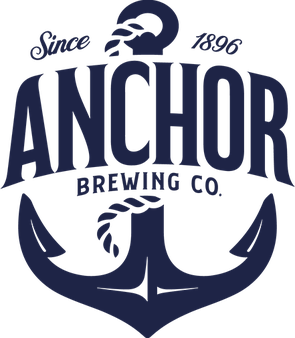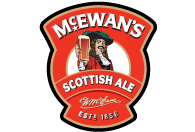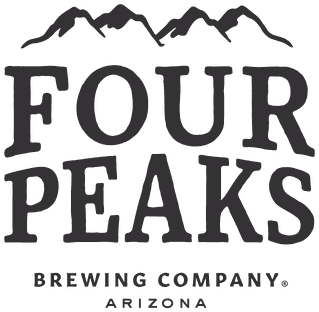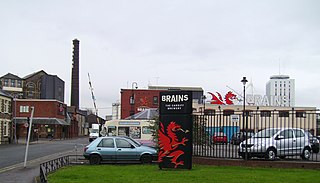
Newcastle Brown Ale is a brown ale, originally brewed in Newcastle upon Tyne, England. Launched in 1927 by Colonel Jim Porter after three years of development, the 1960 merger of Newcastle Breweries with Scottish Brewers afforded the beer national distribution and sales peaked in the United Kingdom in the early 1970s. The beer underwent a resurgence in the late 1980s and early 1990s with student unions selling it. Brewing moved in 2005 from Newcastle to Dunston, Tyne and Wear, and in 2010 to Tadcaster. In 2017, the Heineken Brewery in Zoeterwoude, the Netherlands, also began production. As of 2019, it is brewed as well by Lagunitas Brewing Company in Petaluma, California, and Chicago, Illinois, for the American market.

Craft beer is a beer that has been made by craft breweries, which typically produce smaller amounts of beer, than larger "macro" breweries, and are often independently owned. Such breweries are generally perceived and marketed as emphasising enthusiasm, new flavours, and varied brewing techniques.

Smoked beer is a type of beer with a distinctive smoke flavour imparted by using malted barley dried over an open flame.

Anchor Brewing Company was a brewery on Potrero Hill in San Francisco, California. Founded in 1896, the brewery underwent several changes in location and ownership throughout its history. After years of declining sales due to competition with larger breweries, Anchor was purchased by Frederick Louis “Fritz” Maytag III in 1965, preventing its closure. The brewery operated at its Potrero Hill location from 1979 and was one of the last remaining producers of steam beer, a variety of beer trademarked by the company.

India pale ale (IPA) is a hoppy beer style within the broader category of pale ale.

McEwan's is a brand of beer owned by Carlsberg Marston's Brewing Company. It was originally brewed by William McEwan's Fountain Brewery in Edinburgh, Scotland. The McEwan's brand passed to Heineken in 2008 after their purchase of Scottish & Newcastle's British operations. Heineken sold the brand to Wells & Young's in 2011, who sold their brewing operation, including the McEwan brand to Marston's in 2017. Cans and bottles are now brewed in Bedford, England.

Beer was introduced to Canada by European settlers in the seventeenth century. The first commercial brewery was La Brasseries du Roy started by New France Intendant Jean Talon, in Québec City in 1668. Many commercial brewers thrived until prohibition in Canada. The provincial and federal governments' attempt to eliminate "intoxicating" beverages led to the closing of nearly three quarters of breweries between 1878 and 1928. It was only in the second half of the twentieth century that a significant number of new breweries opened up. The Canadian beer industry now plays an important role in Canadian identity, although globalization of the brewing industry has seen the major players in Canada acquired by or merged with foreign companies, notably its three largest beer producers: Labatt, Molson and Sleeman. The result is that Moosehead, with an estimated 3.8 percent share of the domestic market in 2016, has become the largest fully Canadian-owned brewer.

Four Peaks Brewing Co. is an Arizona brewery that was founded by Andy Ingram, Jim Scussel, and Randy Schultz in 1995 and opened to the public on December 11, 1996. The company is headquartered in the historic former Borden Co. Creamery and Ice Factory on 8th Street in Tempe, Arizona, about one-half mile (800 m) east of the campus of Arizona State University.

Spoetzl Brewery is a brewery located in Shiner, Texas, United States. It produces a diverse line of Shiner beers, including their flagship Shiner Bock, a dark lager that is now distributed throughout the US. The brewery is owned by the Gambrinus Company, a family-owned company based in San Antonio, which also owns Trumer Brewery in Berkeley, California.

Beer has been brewed in England for thousands of years. As a beer brewing country, it is known for top fermented cask beer which finishes maturing in the cellar of the pub rather than at the brewery and is served with only natural carbonation.

Beer in Wales can be traced to the 6th century. Since the 2000s, there has been a growing microbrewery industry in Wales.

In the United States, beer are manufactured in breweries which range in size from industry giants to brew pubs and microbreweries. The United States produced 196 million barrels (23.0 GL) of beer in 2012, and consumes roughly 28 US gallons (110 L) of beer per capita annually. In 2011, the United States was ranked fifteenth in the world in per capita consumption, while total consumption was second only to China.

Caledonian Brewery was a Scottish brewery founded in 1869 in the Shandon area of Edinburgh, Scotland.

Brewing in Ireland has a long history. Production currently stands at over 8 million hectolitres, and approximately half the alcohol consumed is beer.

Belhaven Brewery is a brewery based in Belhaven, Scotland. The brewery dates from 1719, at least; by 2005 it had become the largest and oldest surviving independent brewery in Scotland. In November 2005, the Suffolk based brewery Greene King completed a £187 million takeover of the company. The brewery complex is designated Category A listed.

Beer is one of the oldest human-produced drinks. The first chemically confirmed barley-beer – from the area of Mesopotamia, part of modern-day Iraq – dates back to the 5th millennium BCE. The written history of ancient Egypt and Mesopotamia records the use of beer, and the drink has spread throughout the world; a 3,900-year-old Sumerian poem honouring Ninkasi, the patron goddess of brewing, contains the oldest surviving beer-recipe, describing the production of beer from barley bread, and in China, residue on pottery dating from around 5,000 years ago shows that beer was brewed using barley and other grains.

Beer in the United Kingdom has a long history, and has quite distinct traditions. Historically the main styles were top-fermented Bitters, Porters, Stouts and Milds, but after World War II lagers took over half the market by volume. The Campaign for Real Ale (CAMRA) was founded in 1971 and has encouraged the preservation and revival of traditional styles of ale. In particular CAMRA has promoted cask conditioned beer, which completes its maturation in casks in the cellar of the pub rather than at the brewery. As of 2014 the UK drank 634 million imperial pints of cask ale, representing 60% of ale in pubs and restaurants and 17% of all beer in pubs. In total 42.42 million hectolitres of beer were produced in 2013 of which 48% was sold in the off-trade.

Beer in Scotland is mostly produced by breweries in the central Lowlands, which also contain the main centres of population. Edinburgh and Alloa in particular became noted for the export of beer around the world in the 19th century.
Beer in Northern Ireland has been influenced by immigration into Ulster, especially from Scotland, and the drinking habits in Ireland until the partition of Ireland. Whiskey drinking was always a tradition with Guinness from Dublin being a strong influence in the style of beer drunk in the 19th and 20th centuries. Brewing traditions almost ceased to exist as smaller breweries closed, or were taken over, and then the large breweries in turn closed down their facilities. The Campaign for Real Ale (CAMRA) was founded in 1971; however, it was 10 years before the first new brewery, Hilden Brewing, opened its doors.


















